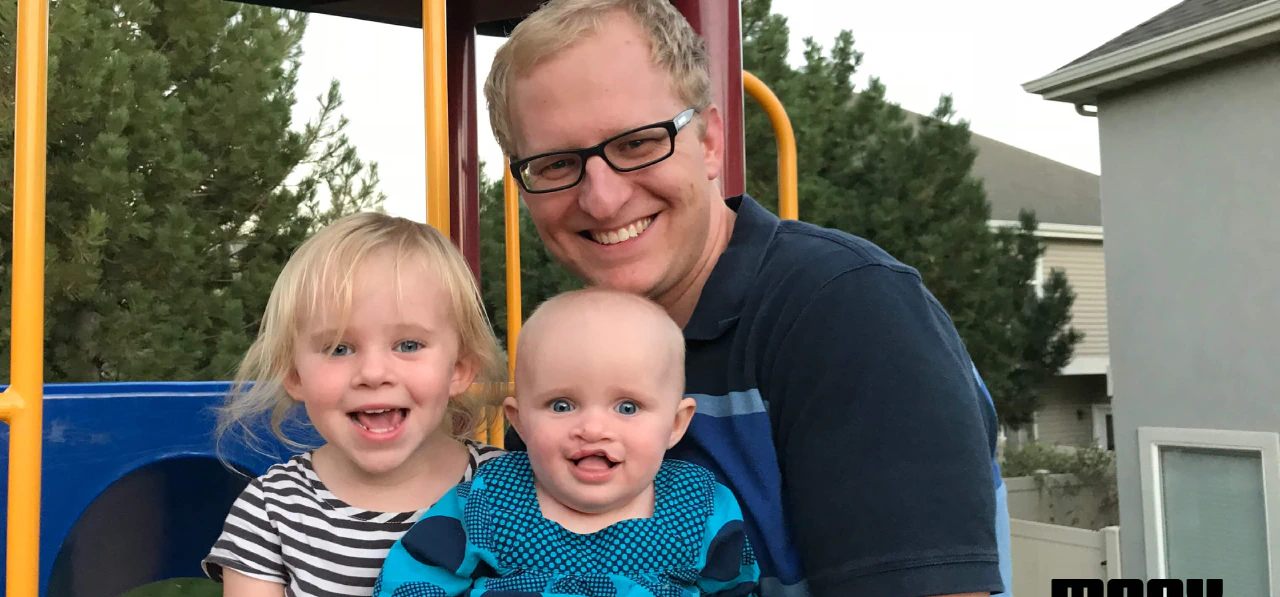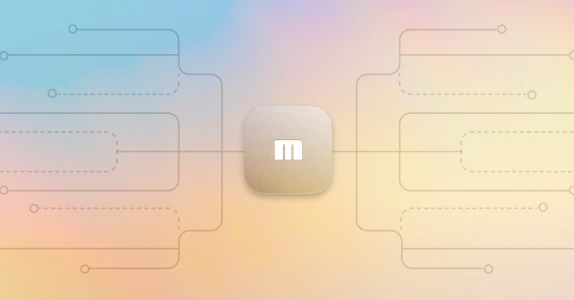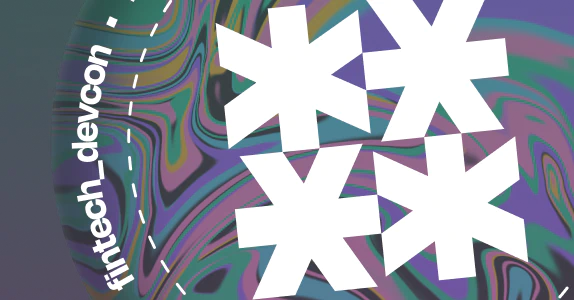
Why I joined Moov: Logan Hendricks
If you were to ask a software developer about their professional background, chances are they’d explain a traditional career path.
Most software developers graduate from college with a software engineering or computer science degree and then land their first job in the field. From there, it’s like a figurative gate is lifted, and they’re free to explore the entire computer science field because they checked the correct boxes in the proper order.
That’s not how it worked for me.
I’m what is known as a non-traditional software developer. I graduated with a B.A. in art history, and after college, I managed a successful stained glass studio that sent me traveling all around the globe.
Not long into my art career, I was blessed with a wonderful wife and growing family, so I decided it was time to give up the art world for something more financially sound.
I explored the banking industry, worked as a teacher and eventually decided to give the technology world a chance. I knew I had the technical mind for it because I built my first gaming rig at 16, but little did I know, getting into software development without a related degree was much harder than expected.
For starters, computer science is both a high depth and high breadth field. Some developers choose to study the entire computer science spectrum, while others pick one topic and spend their whole career diving into it. In addition, with all the different frameworks and programming languages, changing job roles often means learning an entirely new skill set. Because I didn’t get my computer science degree, I knew I had to learn as much as possible both on the job and with my coworkers and pursue additional education on the side (while juggling a family). I’m not going to lie; it was tough.
Over the years, I began to notice an unfortunate pattern. Because I was a non-traditional developer without a related degree, I was often treated as an outsider. It was as if my goal posts were farther away and more challenging to reach than my CS-degree holding colleagues. Even when I’d prove my technical skills repeatedly and work overtime on projects, I was often told I couldn’t move up because I didn’t have the same piece of paper that everyone else had.
What’s more, because I made it my goal to learn every skill set I could, I soon found myself doing the work of multiple people despite only getting paid for one. Before I knew it, I was a project manager, product owner, backend engineer, frontend engineer, and DevOps engineer, all at the same time. You can probably imagine the type of impostor syndrome I felt when faced with a seemingly impossible hill to climb while also wanting to do whatever necessary to be recognized by this exclusive club.
Finally, after five years of working myself to the bone, I decided something needed to change. I spent all this time checking boxes for specific skill sets and trying to backfill knowledge that I ended up deprioritizing my happiness. Sure, I got to work on unique products that spanned from cybersecurity to insurance to NASA satellites, and I had some wonderful managers and coworkers along the way.
Share thisBut I soon realized that it’s the people I work with—not the product—that make a significant impact on my happiness and job satisfaction.
When an old colleague named Daniel reached out to me about a job opportunity at Moov, I was honestly very skeptical. I’d been catfished by companies before, so I was extra cautious and thorough while talking to Moov’ers. Luckily, during the interview process, it became immediately apparent how much Moov valued the interview process as a gatekeeper for hand-picking new talent.
My interview wasn’t just a single 20-minute chat with HR and a hiring manager. Instead, I got to meet with numerous contributors along the product lifecycle, and it gave me a crystal clear picture of the type of people I’d spend my time with learning and growing. I genuinely felt honored to be amongst the group.
Now that I’m an employee at Moov, I’m beyond grateful that what they sold me is exactly what I got—no bait and switch.
Share thisAt Moov, there’s a strong desire for quality engineering, and I’ve been pushed as an engineer to refine my skills and take them to the next level.
What’s more, the leadership team honestly cares more about our people than our product. I’m not just saying that, either.
Once, when working on this API transformation, I decided to work after hours to help push the project along. The next day my boss’ response blew me away. After thanking me for my work and emphasizing just how much he appreciated it, he asked me to promise never to do it again. He explained that Moov is building a culture where that type of work expectation should never have to happen. Since then, we’ve changed our processes and continue to create measures to protect people not just in the next couple of months but in the next decade.
In addition to being fiercely defensive of building a good environment for their people, Moov values my unique background. They see my diverse skill set as a superpower, but instead of taking advantage of it, they let me pick and choose how I want to use it. As a result, I’m a backend engineer who also works on frontend or DevOps tasks because I ask to do them, and I get paid fairly for the work. I love that the entire Moov team is made up of chameleons, yet we’re all equally respected and trusted to help take our product to the next level together.
Overall, if I could share advice for other non-traditional software developers or individuals considering a career change, I’d say this: learn as much as possible, but know your worth. I know the competition is fierce right now with the recent pandemic, the rise of boot camps, and a growing desire to work remotely. However, computer science is a field that requires constant education, and I’ve never stopped my learning journey. I’m currently working on my master’s degree. That’s not to say you have to get a degree, but they add the type of breadth that’s impossible to gain from individual roles. Degrees might not provide knowledge for the job you’re in right now, but they set you up for success in future jobs down the road. And once you start working as a software developer, have confidence in yourself and your contributions.
My final piece of advice is to value your relationships as much as your technical skills. Of course, when you’re ramping up, technical skills are crucial, but they are only part of the equation. It’s easy to ask yourself, “Am I good enough to be here?” Instead, I’d encourage you to change your perspective and start asking, “Who can help me learn, grow, and contribute here?” You’d be surprised by how many intelligent and credentialed teammates can learn from you just as much as you learn from them.
These are the reasons I joined Moov—and why you should too.






